Sleep, anxiety, and thinking are tightly linked — like a three-person group chat where everyone keeps forwarding bad news. When anxiety ramps up, it makes sleep harder. When sleep is poor, thinking, memory, and focus take a hit — and that can make anxiety worse. The result is a vicious cycle many people know too well: lying awake with racing thoughts, then feeling foggy and irritable the next day, which makes concentrating (and calming down) even harder. This blog explains why those links exist, what common sleep disorders have to do with it, how medicines sometimes used for “focus” (like Modvigil) fit in, and practical steps that actually help.
Why anxiety makes sleep so hard (the “on” switch won’t turn off)
Anxiety activates the body’s stress systems. That means racing thoughts, a faster heart rate, tension in muscles, and increased stress hormones (like cortisol) — all of which make falling and staying asleep more difficult. At night, when distractions drop away, anxious minds often ramp up: worrying about tomorrow, replaying conversations, and catastrophizing. That mental hyperarousal interferes with the natural drop in brain and body arousal needed to fall asleep.
Clinically, people with anxiety disorders commonly report insomnia, trouble falling asleep, or waking frequently. This pattern is sometimes called “sleep anxiety” (worry about sleep itself), which can become self-reinforcing: the more you fear sleepless nights, the worse your sleep becomes.
How poor sleep makes anxiety worse (the downward spiral)
Sleep isn’t just “rest” — it’s when the brain processes emotion, consolidates memory, and resets circuits that control attention and mood. When sleep is fragmented or short, emotional regulation becomes harder: the amygdala (emotion center) becomes more reactive and the prefrontal cortex (the “brakes” for emotion and worry) becomes less effective. In plain language: poor sleep makes your emotional thermostat more sensitive and your ability to calm yourself weaker — so anxiety rises. Several studies and reviews support the idea that sleep disturbance and anxiety influence each other over time, and that targeting sleep can reduce later anxiety symptoms.
The sleep–cognition link: why your focus and memory suffer
Even one night of poor sleep can make attention, reaction time, judgment, and short-term memory worse. Over days and weeks, chronic poor sleep reduces processing speed, working memory capacity, and decision-making accuracy. That’s why, after a bad night, you may feel “foggy,” make silly mistakes, or find it hard to concentrate in meetings. These cognitive effects are well-documented in sleep science and show up across ages and tasks.
Anxiety and focus — why worry steals attention
Anxiety doesn’t just make you feel bad — it changes where your attention goes. According to attentional-control models, anxious people often have two linked problems: (1) they’re more easily distracted by threat-related or negative thoughts, and (2) the brain systems that usually help you stay on-task are less efficient. In day-to-day terms, you’re more likely to notice worrying things and less able to ignore them, so sustained concentration suffers. That’s the scientific backbone behind the keyword “anxiety and focus.”
Sleep disorders: the special role they play
When someone has a diagnosable sleep disorder — insomnia, obstructive sleep apnea (OSA), shift-work disorder, restless legs syndrome, or circadian rhythm problems — the risk of anxiety and cognitive problems rises. For example:
- Insomnia (difficulty falling/staying asleep) commonly co-occurs with anxiety; treating insomnia often lowers anxiety.
- Obstructive sleep apnea causes fragmented sleep and daytime sleepiness; it’s associated with mood and cognitive problems.
- Shift-work sleep disorder or chronic circadian disruption can worsen both mood and cognitive sharpness.
If sleeplessness is part of an underlying disorder rather than one-off stress, it usually needs targeted treatment (behavioral or medical) rather than only self-help.
What about Modvigil (armodafinil) — can it help with focus or anxiety?
Short answer: Modvigil is a wakefulness-promoting agent used to treat excessive sleepiness from narcolepsy, obstructive sleep apnea (residual sleepiness), and shift-work disorder. It improves daytime alertness and can help focus in people with those conditions — but it is not a treatment for anxiety, insomnia, or the underlying sleep problem.
A few important points to know:
- Armodafinil can improve alertness and sustained attention in people with sleepiness, which may indirectly help daily functioning.
- However, in some people stimulant-type wakefulness agents (including modafinil/armodafinil in rarer cases) can cause nervousness, restlessness, or increased anxiety/insomnia. They are not a substitute for regular sleep. If you take them late in the day they may worsen sleep.
- Off-label use of Modvigil to “boost study focus” or compensate for chronic poor sleep is risky: it masks sleepiness without fixing the cause and may create new sleep timing or anxiety problems. Always discuss with a doctor before starting any wakefulness medication.
Practical, evidence-backed steps to break the cycle
You don’t have to pick between staying anxious and being exhausted. Here are actionable, research-supported steps used by clinicians:
- Treat sleep first when appropriate. For chronic insomnia, Cognitive Behavioral Therapy for Insomnia (CBT-I) is the first-line recommended treatment and often reduces anxiety too. CBT-I includes stimulus control, sleep restriction, and cognitive strategies to reduce bedtime worry.
- Improve sleep hygiene: regular sleep-wake times, a cool/dark bedroom, avoiding screens before bed, and limiting caffeine after the afternoon. These small habits can lower night time arousal.
- Address anxiety directly. Evidence-based therapies (CBT for anxiety, exposure therapy, and ACT) reduce the intensity of worry and rumination, which makes falling asleep easier. Medication for anxiety can help some people, but it should be discussed with a prescriber.
- Don’t rely on alertness drugs as a fix. If a prescriber suggests armodafinil/Modvigil for wakefulness, understand why it’s being prescribed (narcolepsy/OSA/shift-work) and weigh benefits vs. possible anxiety/insomnia side effects.
- Lifestyle supports: regular daytime exercise (not too late), limiting alcohol at night, and stress-management practices (brief relaxation, breathing exercises, brief worry journaling before bed) all help both sleep and anxiety over weeks.
FAQs
Q: Is anxiety causing my poor sleep, or is sleep causing my anxiety?
A: Often both. Sleep problems and anxiety are bidirectionally linked — each can cause or worsen the other. Many people benefit from treating sleep problems directly (for example, with CBT-I) alongside therapy for anxiety.
Q: Can Modvigil fix my daytime brain fog if I didn’t sleep well?
A: It may temporarily improve wakefulness if prescribed for a medical sleepiness disorder, but it won’t replace the restorative benefits of real sleep and may worsen night time sleep or anxiety if used improperly. It’s not a cure for chronic sleep deprivation.
Q: Will better sleep improve my concentration at work?
A: Yes. Sleep helps attention, working memory, and decision-making. Improving sleep quality commonly improves daytime cognitive performance.
Q: What if I can’t stop worrying at bedtime?
A: Try a simple “worry period” earlier in the day (15–20 minutes to note and plan), leave bedtime for low-effort routines (reading, relaxation), and avoid problem-solving in bed. If bedtime worry persists, evidence-based therapies for anxiety can teach specific tools to reduce ruminations.
Q: When should I see a sleep or mental health specialist?
A: If poor sleep or anxiety is frequent, severe, or hurting work/relationships (or if you snore loudly and feel very sleepy during the day), see a clinician. Sleep disorders like OSA need diagnosis and treatment; chronic anxiety benefits from targeted therapy and possibly medication.
Bottom line
Anxiety, sleep, and cognition form a tightly coupled loop: anxiety fuels poor sleep, poor sleep undermines focus and emotion regulation, and that makes anxiety worse. The good news: both sleep and anxiety are treatable. Behavioral treatments (especially CBT-I for insomnia and CBT for anxiety), sensible sleep habits, and treating underlying sleep disorders are the safest, most effective ways to restore sleep and sharpen thinking. Drugs that boost wakefulness — like Modvigil/armodafinil — can have a role when used correctly and for the right reasons, but they’re not a shortcut to mental clarity and can sometimes worsen anxiety or insomnia. If you’re stuck in the worry–sleeplessness loop, a clinician can help build a practical, stepwise plan to break it.
References
- Alvaro PK, Roberts RM, Harris JK. A Systematic Review Assessing Bidirectionality between Sleep Disturbances, Anxiety, and Depression. PMC. PMC
- Peng A., et al. Sleep disturbance is a stronger predictor of anxiety (2024). PubMed. PubMed
- Khan MA, et al. The consequences of sleep deprivation on cognitive function (2023). PMC. PMC
- Eysenck MW, et al. Anxiety and cognitive performance: Attentional Control Theory. PubMed (2007). PubMed
- Robinson OJ. The impact of anxiety upon cognition. PMC (2013). PMC
- Dailymed / FDA labeling — Armodafinil (Nuvigil) prescribing information. DailyMed
- McCarty DE. A critical review of armodafinil and modafinil: effects and adverse events. PMC. PMC
- Sleep Foundation — Anxiety and Sleep (overview and practical tips). Sleep Foundation

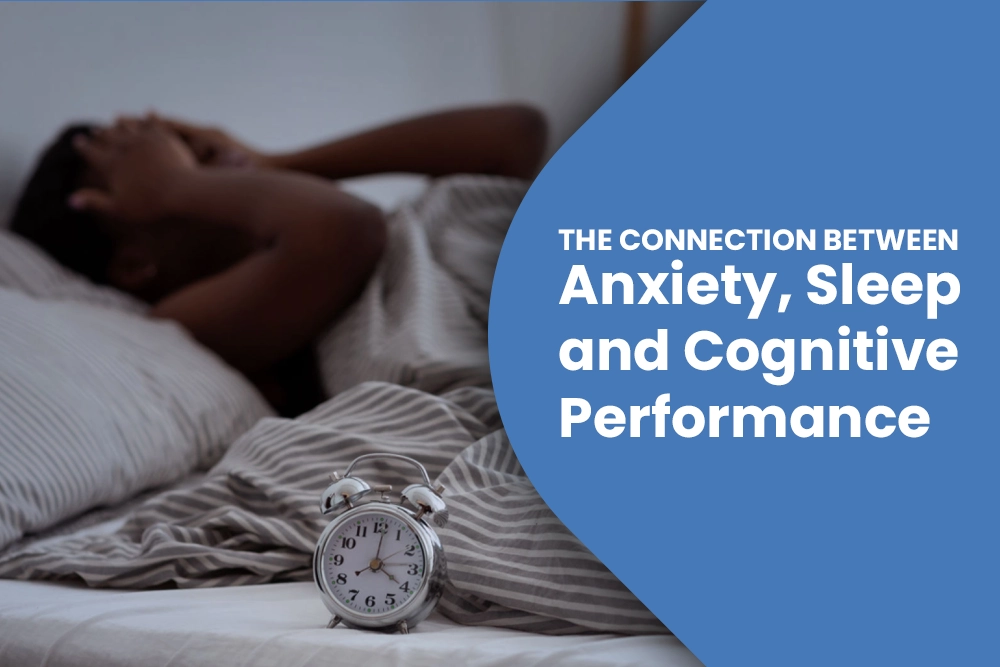


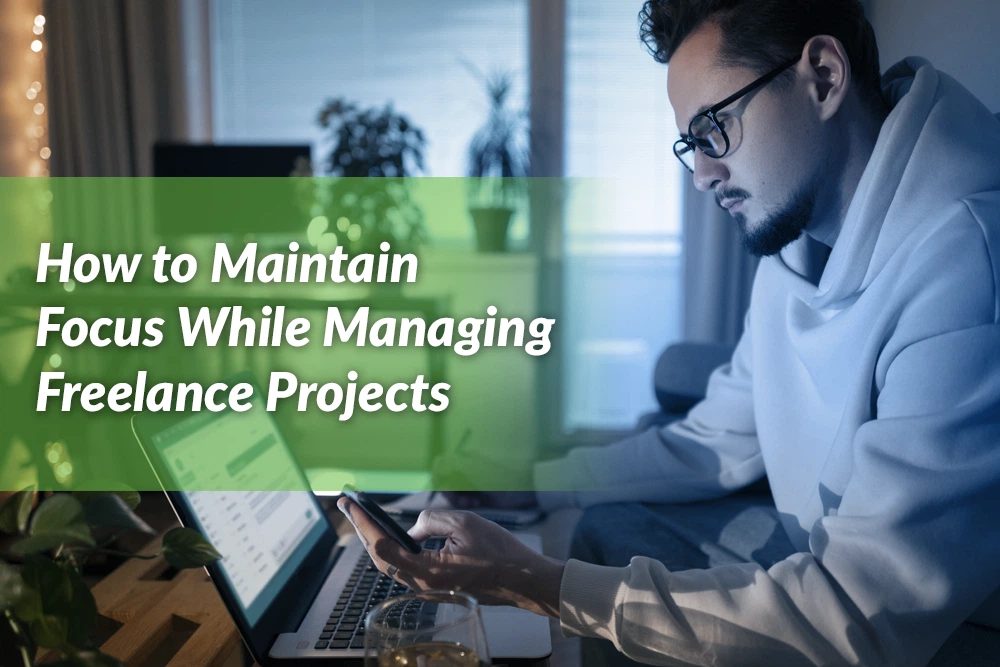
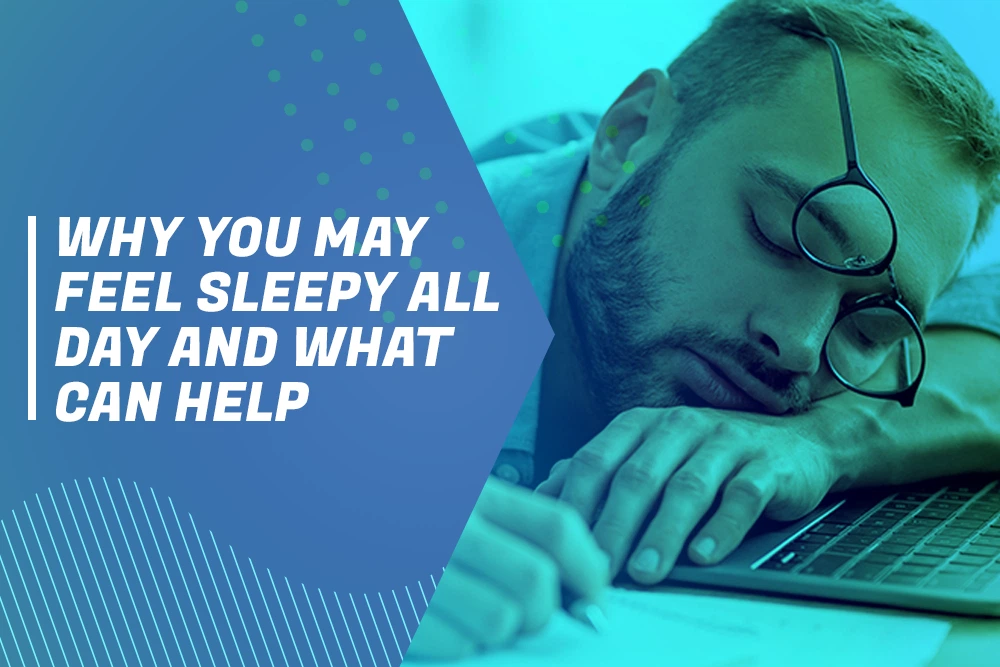

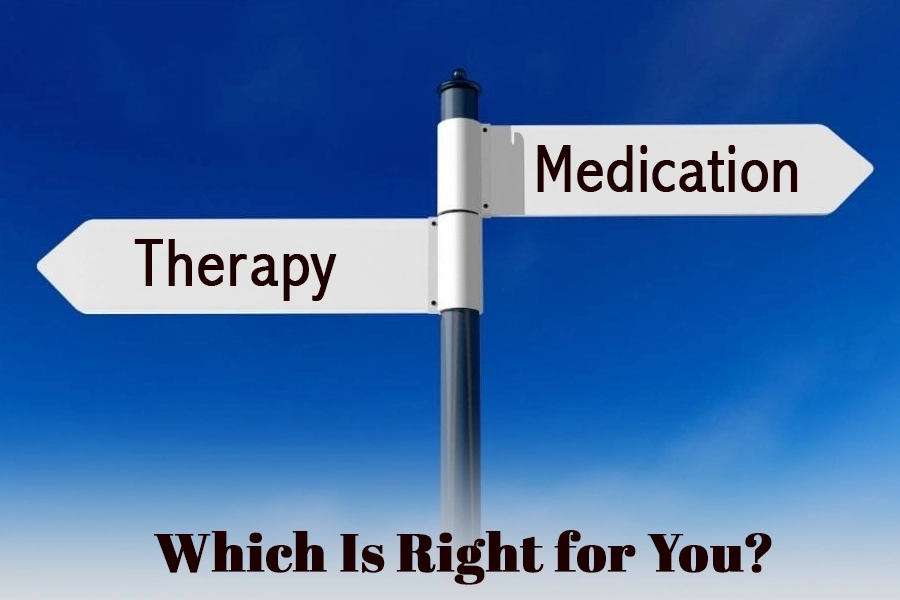
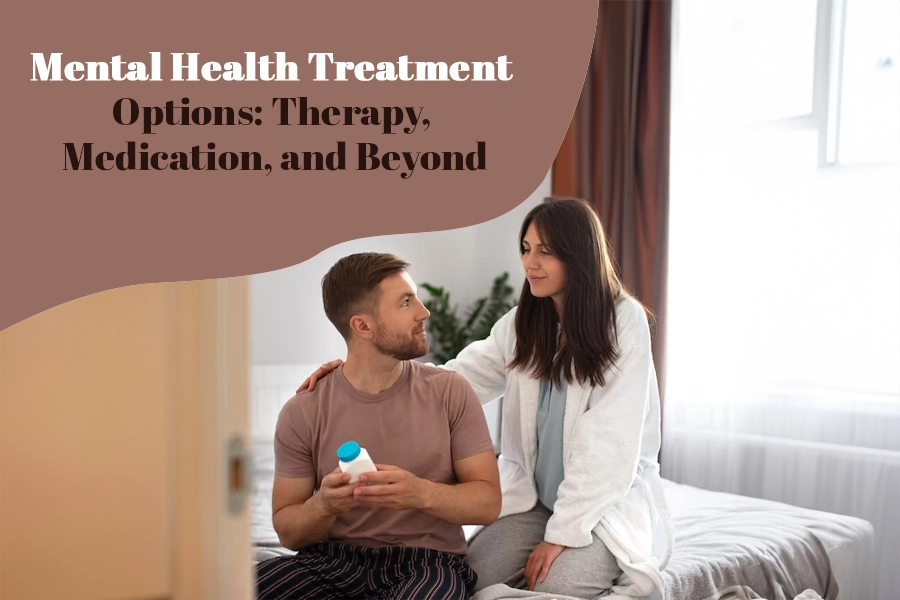
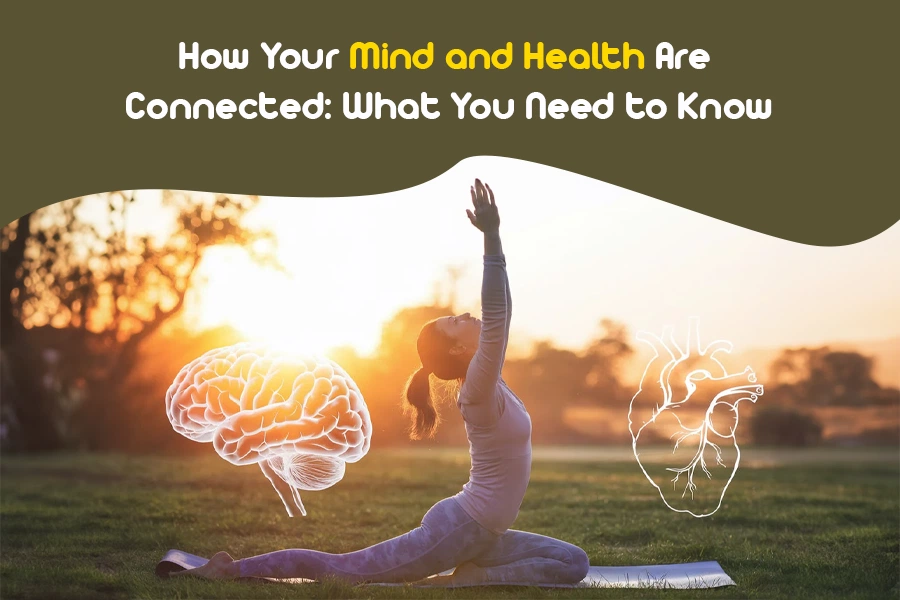
Leave a Reply